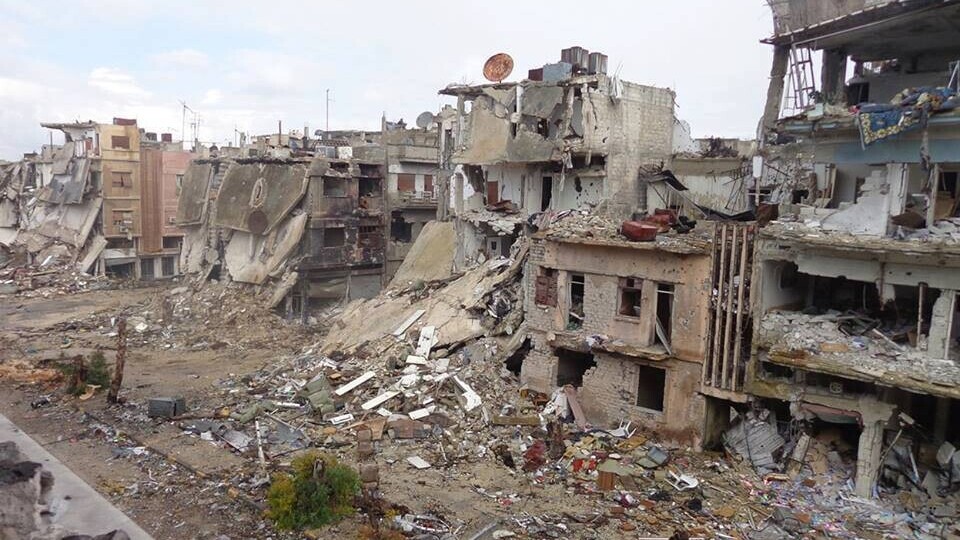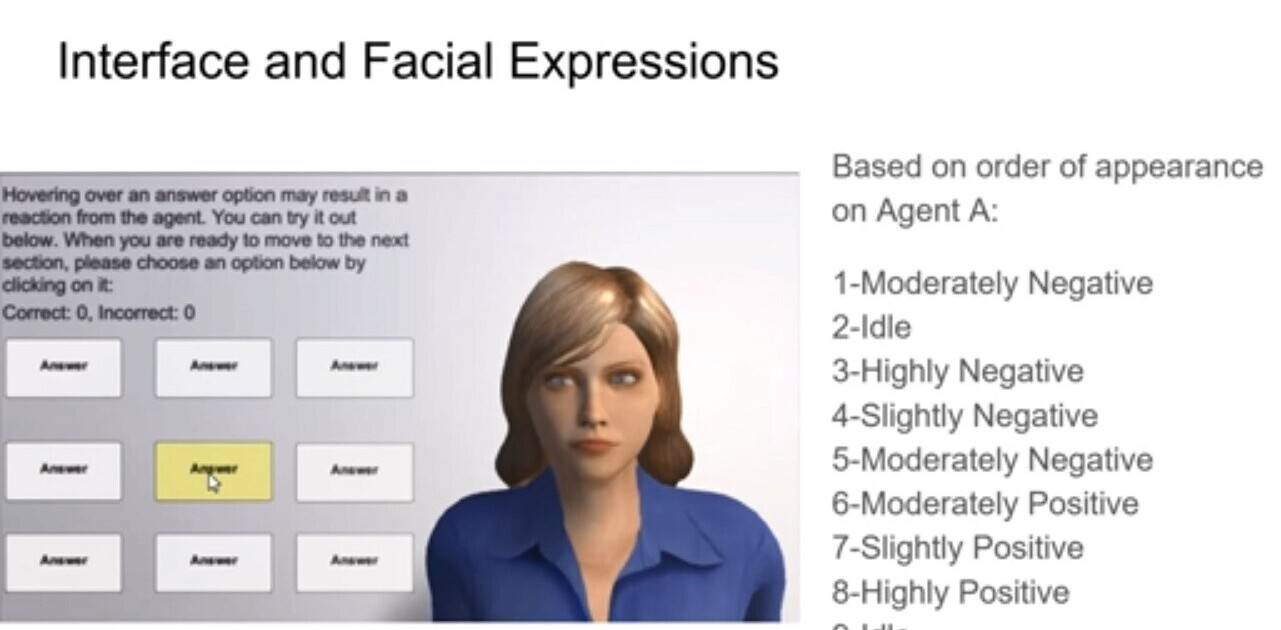I thought the controversial first-person survival/shooter game Six Days in Fallujah was dead over a decade ago. At the time, I felt its cancellation was good riddance to bad rubbish. But today I learned it’s back on schedule for a 2021 release. My complete disdain for this title has a bit more nuance today.
I enlisted in the US Navy exactly 21 years ago today, on 17 February 2000. I knew at least two of the US Marines who died in the 2004 battle the video game portrays. And, by the time Six Days In Fallujah was canceled in 2009, dozens of sailors, soldiers, airmen, and marines I knew were still in that theater.
It was weird to imagine playing a video game based on a war my friends were still fighting in. It’s still weird today, especially considering the US is still fighting conflicts related to that war.
I spent 10 months in the Persian Gulf during the Iraq War, though it was from the relative safety of an aircraft carrier.
But I wasn’t in theater during the events portrayed in the Six Days game. The second battle of Fallujah happened in November and December of 2004 while I was off in the Caribbean performing counter-narcotics operations.
Background
2004 was the year The Sims 2 debuted on PC and Shrek 2 dominated movie theaters worldwide. But many of us will only remember that period for the hundreds of thousands of Iraqi citizens, including nearly 12,000 in 2004 alone, who were killed in the horrific war.
The Iraq War featured a level of violence against civilians that hearkened back to World War II and, by many estimates, hadn’t been seen by US forces since the Vietnam conflict.
At the time, most of us in the service who weren’t directly involved in the ground conflict didn’t know this. We were told that Saddam Hussein had to be taken out of power because of the atrocities he committed on his own people and the threat of nuclear warfare he posed. The majority of us believed we were liberating a people and protecting global freedom.
But intel featured in the biggest war documents leak in US history, combined with easily-confirmed reports of the US forces’ use of tactics dubbed ‘war crimes,’ such as the use of white phosphorous (an indiscriminate chemical warfare compound), forever changed the public perception of the US’ instigation and involvement in the Iraq War.
Games
Today, I woke up to learn that Six Days in Fallujah is back. After becoming mired in controversy, development on the game was stalled and it was canceled in 2009. Now it’s slated to be released sometime this year.
The original development studio went out of business but the game’s found a new home with developer Highwire Games and publisher Victura.
I’ve scoured articles from today and 2009/2010 to find an appropriate description of the game and why it exists. Peter Tamte, the game’s creator, seems to sum it up best in a 2009 Joystiq interview:
As we’ve watched the dialog that’s taken place about the game, there is definitely one point that we want people to understand about the game. And that is, it’s not about the politics of whether the U.S. should have been there or not. It is really about the stories of the Marines who were in Fallujah and the question, the debate about the politics, that is something for the politicians to worry about. We’re focused now on what actually happened on the ground.
The game’s been dubbed a ‘survival’ game and a ‘first person shooter.’ The creators, to this day, maintain the game’s purpose is to tell the tale of the brave men and women who fought in the war, from the US perspective. But “what actually happened on the ground,” can’t really be shown in a video game. At least not unless that video game faces civilian death head-on.
Apparently there is at least one mission where players will assume control of an Iraqi civilian trying to escape the city, but the developers have been very clear on the fact this game is not about the politics or the atrocities of war, but about the bravery of the warriors who fight.
To this, I respond with traditional military jargon: Bullshit.
War
I’d wager more words have been written about war than any other topic save perhaps religion and love – and I dare say an out-sized portion of the discourse on those topics is war-related too.
Six Days in Fallujah isn’t the first game to convey a controversial period of conflict. The Medal of Honor, Call of Duty, and Battlefield franchises have all touched on difficult topics surrounding the brutality of wars both fictional and historical.
Outside of gaming, there are countless movies and books about every possible facet of war. Yet seldom are the creators behind these films and texts accused of whitewashing or glorifying atrocity. Hell, Call of Duty recently revisited WWII and hardly anybody batted an eye.
So why is Six Days different? Because, in my opinion, it’s a disingenuous piece of propaganda.
Here’s a quote from Tamte as featured in a Games Industry (dot) Biz article today:
We can’t tell the story without telling the rest of it. We have to give players the context for why they’re in the city, why this battle exists. There were very specific things that led up to the battle for Fallujah. And they’re historical events, they’re facts, they’re not something that a Conservative is going to think is good, and Liberals [are] going to think it’s bad, or vice versa…
Players need that context to understand why they’re in the city fighting those Al-Qaeda people. We are going to provide that context, but keep in mind that we can provide that context without making a political statement, or without in any way disparaging the service of those who are actually there to fight.
None of this adds up. You can describe the events of a war without making a political statement. The classic “Battleship” game does a fine job of that. And you can certainly address the horrific politics behind the brave sacrifices of those who served; just look at Hearts of Iron IV, a game that specifically deals with the politics that lead to WWII and the politics that ended it.
But neither of those games trucks in controversy because they’re not willfully peddling a soldier-porn emotion simulator.
The problem
We know war is horror. There are no “good guys,” in war, no matter the conflict. In World War II, for example, more than 400 thousand German civilians were killed by allied bombs. That’s nearly half a million innocents killed in response to the Reich’s war atrocities. The only people who win at war are those who earn their promotions and accolades from the safety of their nation’s unmolested Capitols.
Six Days will apparently focus on squad-based tactics. The second battle of Fallujah didn’t happen in the streets or deserts of Iraq. It happened in houses, apartments, and shelled-out business buildings. US forces and their allies, understanding the enemy was entrenched and willing to die for position, performed building-by-building sweeps to clear the enemy.
From what I can tell from the unreleased game, its purpose will be to try and convey the chaos and terror of the situations US Marines found themselves in as they went house to house looking for hidden enemies. Hence the “survival horror” claims made by its devs.
But if they’re not going to be honest about what happened, or admit to fictionalizing it, what’s the point? This particular “war game” just seems to be a Muslim slaughter simulator dressed up as a historical battle sim.
I like war games. But I don’t understand why anyone would want to make a game about this specific battle, one that saw nearly as many civilian deaths as enemy casualties, unless they wanted to tell the whole story.
Fallujah 2
It was not a triumphant or strategically notable battle, nor was victory ever in question due to the US and its allies’ scorched earth tactics. Approximately 1,200 insurgents were killed in the second battle of Fallujah, but more than 800 civilians died as well.
The firefighting that occurred in Fallujah wasn’t the kind of battle you see in big budget war movies. It was defined by short, sporadic, indoor engagements between desperate insurgent militia groups and well-armed military forces.
Insurgents in Fallujah turned the city’s Mosques, religious sanctuaries for its people, into arms caches. So allied forces destroyed around 60 of them. Stores, universities, and fast food restaurants were destroyed in Fallujah, not military bases or encampments.
Worse, after the dust settled, it was revealed that many high priority insurgent targets had evacuated the city before fighting started. While US forces and their allies held Fallujah shortly thereafter, the organized insurgency suffered few casualties. It was mostly local militia fighting the marines in Fallujah during that battle.
Six Days in Fallujah, according to the developer interviews I’ve read, will not give players the ability to drop white phosphorous on civilians. It won’t place you in urban combat situations where you’re forced to fire on civilians (including children) because they don’t immediately respond to your commands and you’re afraid they’ll use explosives to martyr themselves if you let them near you.
As best as I can tell, Six Days doesn’t intend to teach anyone anything about the conflict. It’s a tactics-based game that shouldn’t exist because, at its core: it’s a game about slaughtering Muslims that just reskins them as enemy combatants.
If every threat you encounter in the game is an insurgent, the game is lying about what really happened in the second battle of Fallujah. And the courageous men and women who fought in the Iraq conflict deserve better than that.
Propaganda doesn’t help those who’ve fought in wars, just the those who start them.
The second battle of Fallujah didn’t play out like a video game. It was more like a mass-scale law enforcement operation. We’d already bombed the city to shit, killed tens of thousands civilians, and were, at the time, preparing to take it back from insurgents.
This involved indiscriminate attacks on the Iraqi people.
To put this into perspective, when the German Reich demolished Warsaw in 1939 around 18,000 civilians were killed. Later, when the allies dropped nearly 4,000 tons of explosives and firebombs on the German city of Dresden, about 25,000 were killed. Nearly 40 million civilians lost their lives in WWII, a global conflict featuring more than 70 million combatants.
The Iraq War was fought by a coalition of less than 200,000 troops on the US and its allies side initially, with civilian deaths alone estimated as high as 208,000. While the actions of the combatants, the men and women forced to fight in this war, are indeed courageous, the fact that there were more Iraqi civilian casualties than combatant participants on the US side demonstrates both the folly of the war and the callous manner with which its perpetrators exhibited horrors on innocent people.
But what about all the other war entertainment media out there?
Unfortunately, by choosing to eschew political commentary and portray the second battle of Fallujah as just another conflict in the US’ long history of war participation, Six Days prevents itself from being meaningful as a window to the past or from having any redeeming value as an entertainment medium.
War movies that gloss over atrocity and whitewash events to make one side look “good,” are called propaganda films. And, with Six Days, we see what appears to be a propaganda game.
It’d be one thing if we were talking about an arcade shooter or a game that just uses war as a backdrop for gameplay. But Six Days in Fallujah will feature interviews from veterans who fought in the Iraq War as videos bookending missions in the game. This will only serve to legitimize the whitewashed version of events the developers are putting forward.
I can’t speak to the developers’ actual intent, but from where I’m sitting Six Days looks like soldier-porn and US war propaganda. It certainly appears as though it’s developers are scared to piss off right wing gamers who don’t want to hear the truth about the Iraq conflict, so they’ve decided to create a game of cops and robbers where you play as good guys who hunt down the bad guys instead.
In the end, Six Days in Fallujah may turn out to be an amazing game with top-notch gameplay. But it won’t matter to me because I have no interest in an alternate history propaganda game that exploits my dead comrades and the people they fought. Nobody needs a PR-friendly version of a war we’re still not completely done fighting.
Get the TNW newsletter
Get the most important tech news in your inbox each week.






